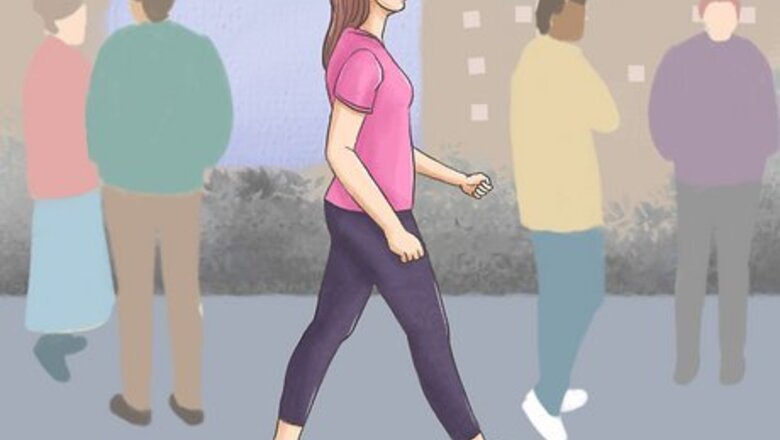
views
X
Trustworthy Source
HelpGuide
Nonprofit organization dedicated to providing free, evidence-based mental health and wellness resources.
Go to source
Making friends is all about being open and accepting while using your best judgement on the sort of people you want to be friends with. With the right advice, you'll find that the process is so much easier than you'd think. Read on to learn all of the very best tips for how to find good friends!
Finding Friends
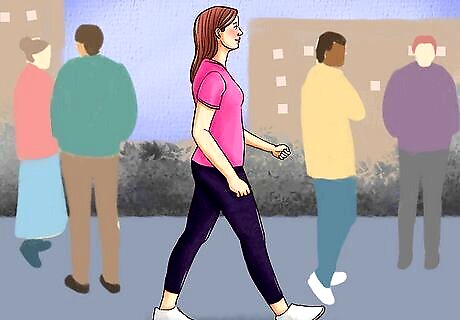
Break out of your daily routine. If you want to make new friends, especially good, long-lasting ones, you may need to step out of your comfort zone—online or IRL. It’s perfectly understandable to want a quiet night at home at the end of a long workday or week. But getting out and about or making an effort to branch out on social media is crucial for making new friends. Instead of ordering your favorite take out, eat in the restaurant. Make a habit of going for a walk around the neighborhood in the evenings. Think of the whole world as your playground, not just your own backyard. Get out and enjoy the sights-you’ll end up meeting people in the process. Follow a few potential friends on social media or DM someone you've always wanted to get to know.

Make a point of accepting invitations. It’s very easy, especially if you’re a somewhat solitary person, to rationalize why you don’t want to go to the party, for instance, why you won’t enjoy it, why it’s not a good idea because you were sick a week ago-but if you want to make friends, you’ll give yourself a major advantage by being willing to accept invitations. Be wary of declining invitations too often; people may eventually stop asking. Accept that you’ll need to inconvenience yourself from time to time in order to spend time with potential friends. Usually the inconvenience stops once you’re together and having a good time. Let others change you. Sometimes, especially if you have emotional walls up, making a good friend requires letting someone break them down. When someone is trying to connect, they may be trying to bring you out of your shell. Let them in, and share your more intimate thoughts and desires with them.
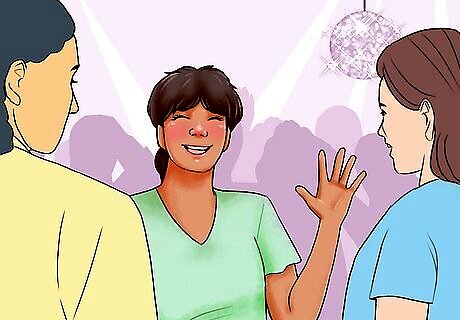
Get out in social places. To meet new people and make good friends, you’ll need to be where people are interacting on a social level. The first step is to walk through the door and out into the world. When you get out to places where there's a good likelihood of meeting and interacting with people in a social context, you've already put yourself on the right track. Even if you feel nervous, try to recognize the feeling and push through it.
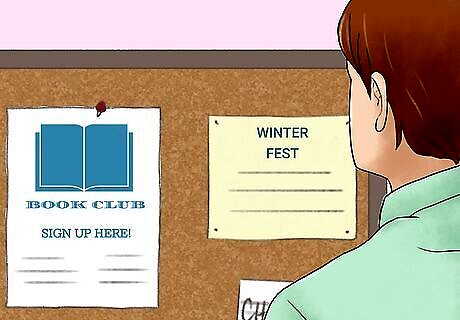
Join some clubs! Search online or at your local community center for club opportunities in your area. Remember, you aren’t the only one in town hoping to find a new friend! If you’re a mom, you can join a mothers club. A mothers club is a place for mothers to get together to discuss their kids, problems they've been having or what they've been doing, as well as just spending time with other mothers and getting to know each other and share stories. If you appreciate literature, join a local book club where you can hang out and discuss the month’s readings.
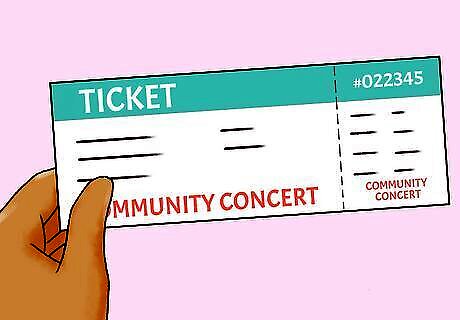
Go to local events. Concerts, neighborhood meetings, or even store grand openings and events at your local library are places where you can interact on a social level with like-minded individuals. Being more present in your community can make a huge difference in your ability to find good friends. Being a member of the same local community means you will always have something to talk about.

Join online forums. Find forums on subjects that interests you. In online forums you can discuss a wide variety of subjects and issues that you relate to with other people, and increase your chance of making a connection with someone who shares common interests. Look into forums that: Relate to your occupation, especially if you are in a specialized field. Focus on a particular sport or hobby that you like. Are populated by people who are in your age group, or share similar backgrounds.
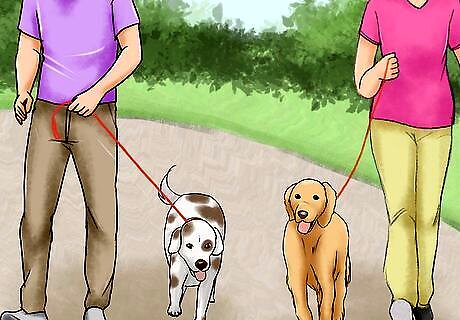
Find common ground. To find good friends, you should get involved with things that you like do, so that if you do meet someone, you'll have the same interests. When you connect with someone with similar tastes as you, be ready to use that connection to develop your friendship further. If you’re into sports, join an intramural or amateur league for your sport of choice. If you’re a veteran, hanging out at the local VFW is a great way to meet fellow service members. If you live in a place with lots of outdoor possibilities, hiking the trails, skiing, swimming or engaging in other outdoor activities regularly can put you in contact with other outdoor enthusiasts (and help you stay in shape, too). Spending active time with a new friend, or even someone you've known for a while, will help take your relationship to a higher level.
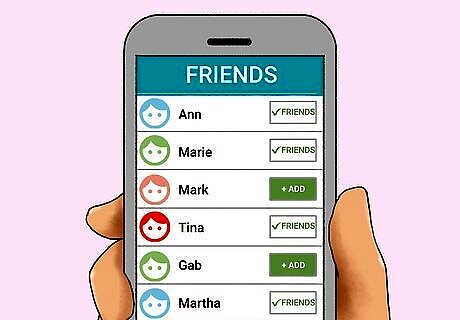
Use social media to put yourself out there. Join an online social site, like facebook, so that if you meet someone you can add them to your social network. Even if you don't know them very well, you can see what they've been doing and keep in touch. Being aware of what is going on in a friend's life makes it more likely that you will be able to connect on a deeper level, and make a casual friendship into a more intimate and close one.

Make friends through friends. Often the best way to meet new people is through mutual acquaintances. Meeting and spending time with the friends of people you already know gives you a leg up-and you’re more likely to get along with someone that your friends get along with.
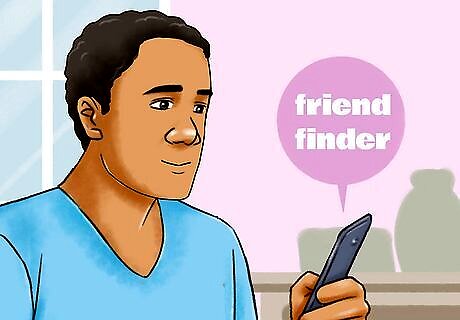
Use an online friend finding service. You might think they’re all dating apps, but there are some services that cater specifically to people looking for platonic connections, such as Meetup and Peoplehunt. These apps can help put you in touch with groups or individuals in your area, and tailor your interests to theirs. Apps such as Foursquare and Crowded Room are also good tools for using location to put you in touch with other like minded individuals.
Making Introductions
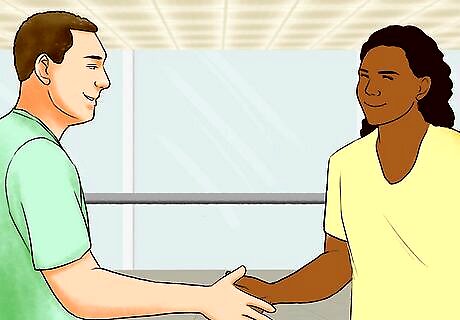
Introduce yourself. If you’re in an appropriate situation, and see someone who seems like they might be interesting, go up and say hi. Tell them your name and make small talk-perhaps you’ve seen them around before and thought you’d introduce yourself. When you introduce yourself, embrace understatement. Usually saying less is best. When you talk too much about yourself right off the bat, it will make you seem overly egotistical. A simple “Hi, I’m Steve,” is way more likely to lead to conversation than, “Hi, I’m Steve. Well, let’s get this party started. I just had a long day making some major business deals with some really important clients from overseas and having my new Jaguar tuned up. What do you do?” Which of the two would you feel more comfortable in responding to? Be aware of the situation when you introduce yourself. If you’re at a company party, say, “Hi, I’m Steve from accounting.” Likewise, if it’s a random situation, don’t feel the need to create a context-if you’ve been introduced at a bar for instance, just stick with “Hi, I’m Steve, nice to meet you”, and focus on the other person rather than declaring your job title or what you did that day. Ask questions and listen. When you meet new people, always try to listen more than you talk. Don’t demand information, but use a simple, “What do you like to do?”-and then listen with genuine interest. Being a good listener is a sure way to get someone on your side.

Know what situations are acceptable to approach people. If you’re in a bar, at a dance, a party, or other social mixing situations, people are more likely to be open to meeting new people. Likewise, avoid walking up and trying to have a conversation when people are busy or going about their daily tasks. Be confident in approaching people, but not overbearing. No one likes to feel like they are being pursued or harassed by someone they don’t know. Observe people’s body language when you approach them. If a person won’t look you in the eye, or seems like they want to disengage from the conversation, let them. When someone speaks to you with an open posture and looks at your face, especially into your eyes, it can be a good indicator that they are willing to engage further. People will often keep their arms crossed when they feel uncomfortable or closed off, or hunch their shoulders and look down. When you see signs of discomfort or avoidance, don’t react with your own annoyance, even if your feelings get hurt a little. Don’t push it-respect others’ body language and nonverbal communication signs; you never know what else is going on with someone to make them unwilling to engage.

Judge people on more than appearances. Appearances are important, especially in first impressions, but you should also consider other aspects of people when sizing them up. How do they behave? Do you find the person interesting based on how they act? How do you feel about their demeanor? How do you feel interacting with the other person? Good friends often are made “naturally”. The two of you simply hit it off, and find that you are comfortable and engaged around one another.

Explore mutual interests. One of the best ways to create an immediate bond with someone is to find common ground. When they mention something that they like that interests you, too, pick up on it. If a person mentions going to the theatre, and you like acting, it might lead to something like, "Really? I was in a production of that two years ago! I love that play!" It doesn't need to be that specific, simply expressing a mutual interest can go a long way.
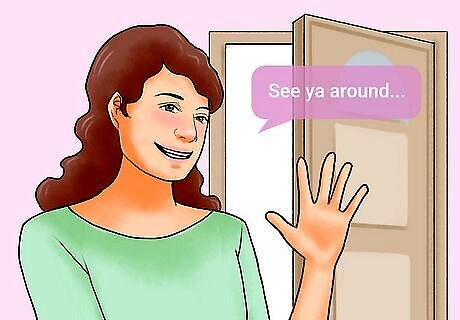
Be relaxed and non-expectant. When you first meet someone, avoid laying expectations on them from the start. Finish your conversation with a casual “see ya around” rather than asking to get together right off the bat. In the right local situations, or if you’ve connected through an app or online service, you’re likely to run into each other again.

Be prepared for intimacy. Usually, a first meeting will be casual and non-committal. But sometimes you connect on a deeper level with someone right off the bat. Be ready! Let your senses guide you. Sometimes someone will just open up to you when they, too sense a connection. Reciprocate intimacy. Sharing intimate or personal stories and experiences creates a bond between people. Everyone experiences pain, fear, loneliness- and sharing that common humanity with someone is what becoming close, good friends is all about.
Getting to Know Each Other

Get together. After you’ve become somewhat acquainted with the other person is a good time to get together and get to know each other better. If you had a good first meeting or introduction, and the other person seems interesting in getting to know you better, take it to the next level and make plans to hang out.

Ask if they’d like to get together sometime. Once you’ve established some mutual interests, find out if the other person wants to share the experience. Whereas a date usually involves an intimate and romantic situation (i.e. candlelight dinner) just hanging out and doing fun stuff is the way for friends to go. If you both like sports, see if they want your extra ticket, or come with you to a game. Engage in recreational activities together on a weekend. Get out for a hike, go kayaking or canoeing, or catch a movie together. Grab some lunch.
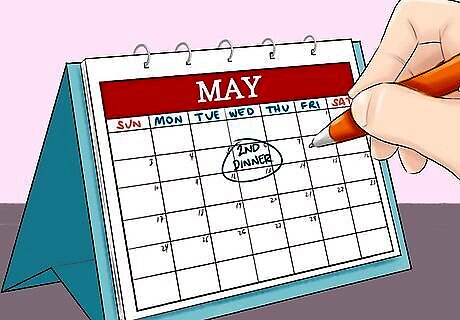
Don’t rush it. Good friendships develop over time. Don’t expect to be best friends after hanging out once or twice. Be casual, have fun, and let things develop as they will. Just like with dating, becoming good friends can’t be forced or manipulated-when it’s there, it’s there, if not, not. The same goes for the other person-if you feel like you’re being pushed into something you’re not ready for, back away. Don’t feel obligated to always meet the other person’s demands because you want a friend. If they’re truly your friend, they will want you to do what’s best for you.
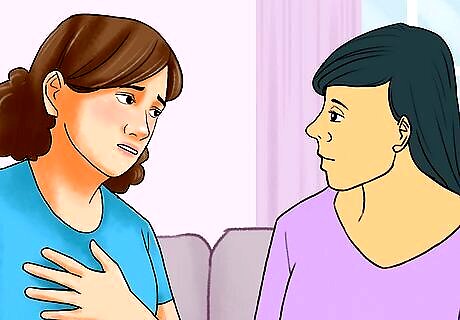
Share yourself on a intimate level. In Method 2 we discussed allowing yourself to open up in first meeting situations. When you are getting to know someone and spending more time with them, it becomes essential to let yourself open up. Make a point of sharing personal and intimate stories. Telling life experiences to each other, especially if they involve less than comfortable subjects, and being honest are useful strategies for connecting on a deep level. Remember, being good friends isn't about showing only the best parts of yourself and your life; it's the struggles that we've all experienced that connect us through our humanity.
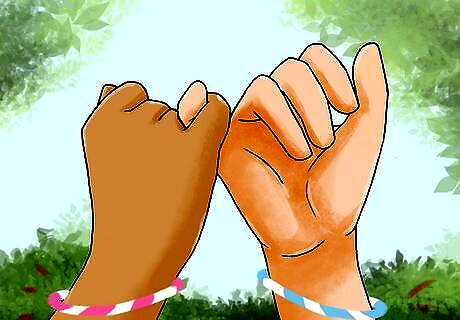
Become good friends. Simply being connected with someone online isn’t the same as having a truly good friend. Even if you have several hundred Facebook friends, having that special person that is there for you in person in times of need and times of joy is important. Be there for them as well. It’s important to view friendship as a two way street. Treat your new friend as you want them to treat you. Don’t sweat the hassle of making plans. Arranging and deciding on times and places to meet can be logistically tricky, especially if your or the other person has a busy work schedule, or if there are more than two people involve. Keep building on your relationship, and keep budding relationships. Once you’ve gotten together some, keep hanging out, keep getting in touch, and keep letting your relationship grow. If you have several people that you get together with occasionally, it’s likely that that special friendship will grow out of these. It takes some effort, but keep after it, and you’ll end up with a good, sturdy, long-lasting friendship.

















Comments
0 comment